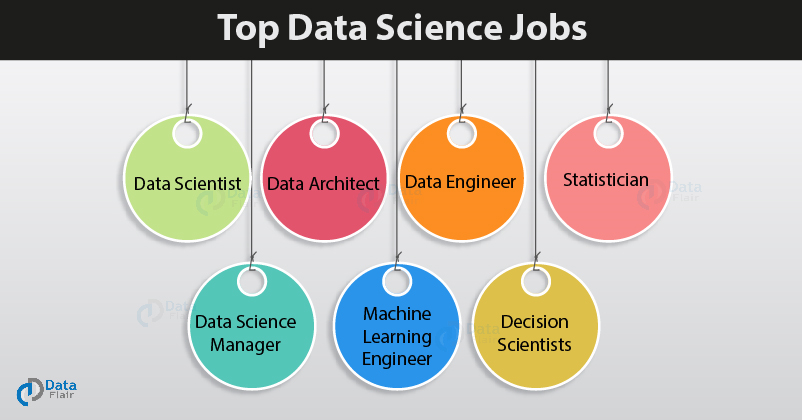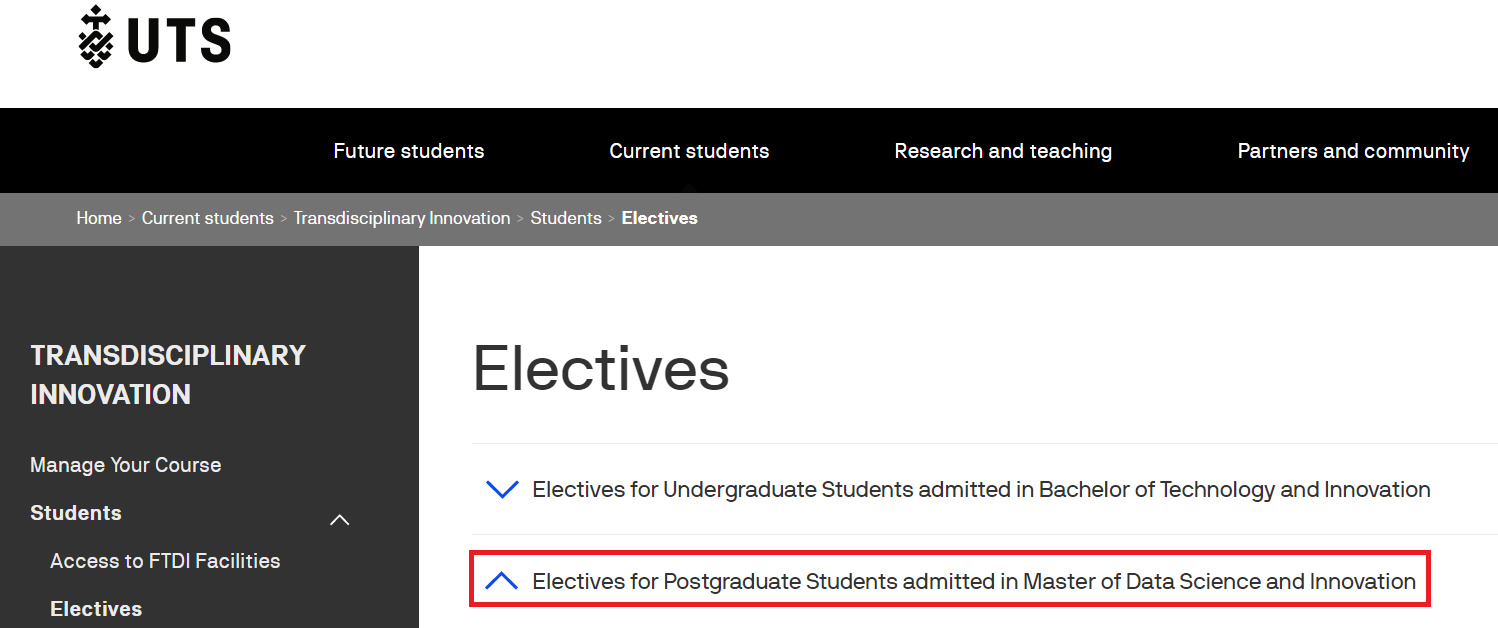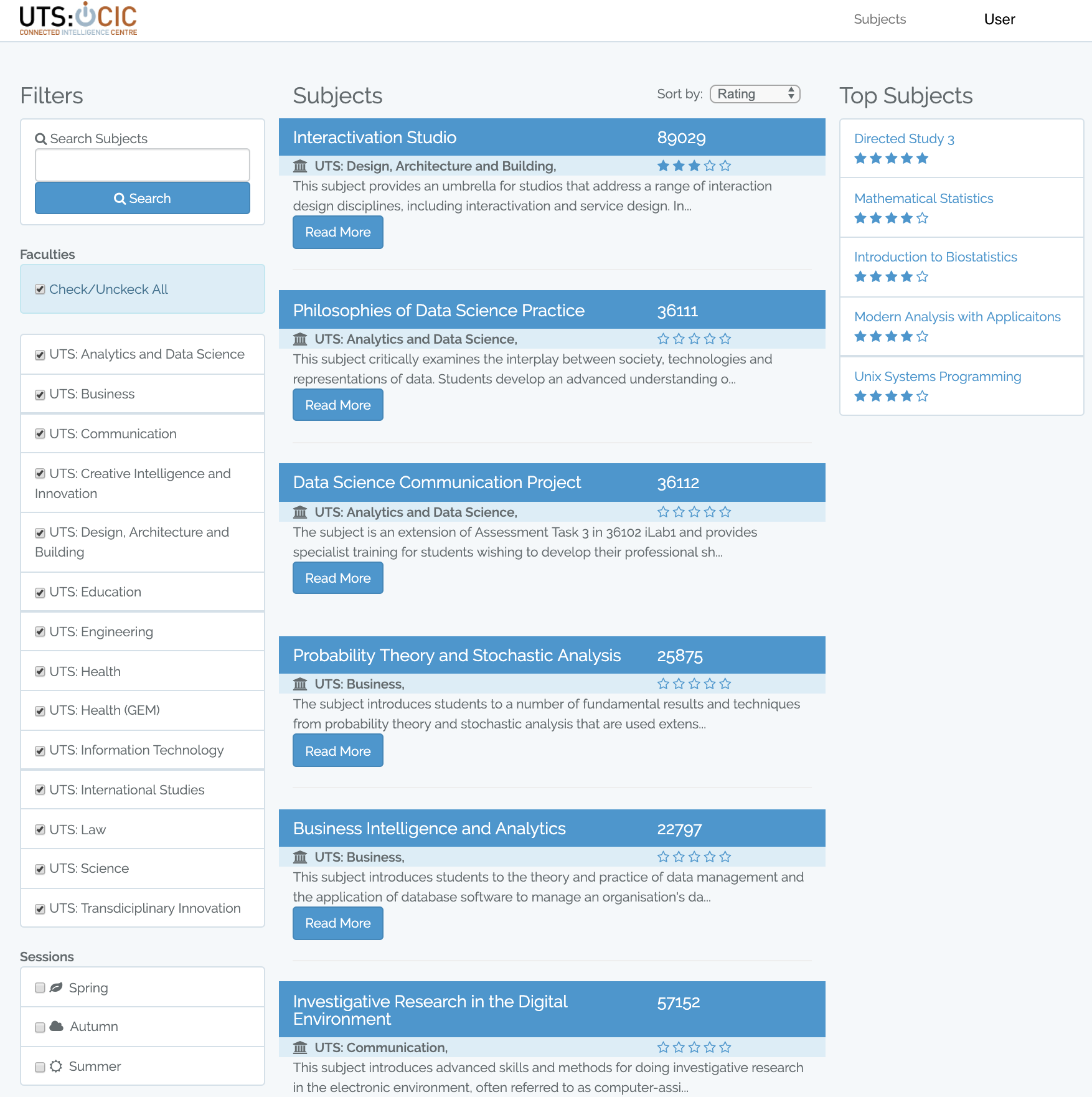4 Guide to choose the right elective subjects
4.1 Introduction
Data science permeates a vast array of sectors and industries in 2019 and this is only set to grow in the coming decades. Given the implementation of data science in commercial industry, data science practitioners will need to be equipped with a large variety of skills, or subset the broad skill set and specialise your knowledge for specific roles in the recent proliferation of data science. In order to specialise one’s knowledge, an MDSI student should select electives that will broaden their knowledge in the domain of their choice. Seven of the most common roles in data science are displayed in the visual below, and each role has been associated with the electives that will help to deepen one’s knowledge and expertise in the role that they may be working towards. To help guide these decsions, always seek advice and mentorship from the academic staff of whom are familiar with the labor market.

If you’d like more information, here we selected a recent article (2019) showing the top roles in the realm of data: Roles/Skills DS.
Based on those roles, we collected some relevant subjects that will give you a glipmse about the vast amount of subjects the UTS offers. The following recommendations don’t take into account the way in which is delivered. Therefore, we can’t assure you that worth it enrol in the subject.
4.2 How to view elective content
4.3 Recommendations
4.3.1 Data Scientist
If you would like to consider a career as a data scientist it is imperative that you knowledge encapsulates a thorough understanding of the following key points;
- How to design and reproduce a scientific experiment
- The most current and widely used machine learning algorithms
- Knowledge of and practical application of deep learning
- Sufficient knowledge and application of the programming languages R and Python
- Data set aggregation, data wrangling and EDA
In order to further develop the skills listed above, which are taught in the core subject of the MDSI program, it is recommended that you enroll in one or more of the selected electives to further develop your domain knowledge and expertise in this data science role.
4.3.2 Data Architect
This role requires to maintain and develop methods, models and artefacts to enable the organisation to use data and analytics to improve its outcomes. Also, it’s desirable to design the reporting and analytical frameworks with appropriate governance models. The knowledge of the cloud environment, managing Data Lakes, security and cold storage is an advantage.
4.3.3 Data Engineer
“The data engineer is someone who develops, constructs, tests and maintains architectures, such as databases and large-scale processing systems.”
Read the full description from Data Camp: https://www.datacamp.com/community/blog/data-scientist-vs-data-engineer
4.3.4 Statistician
“A data scientist is someone who is better at statistics than any software engineer and better at software engineering than any statistician.”
Read full description from Open Data Science: https://medium.com/@ODSC/data-scientists-versus-statisticians-8ea146b7a47f
4.3.5 Data Science Manager
Some of the skills and knowledge that companies are looking for this role are:
collaboration in raising awareness and understanding of data science research tools and outputs.
be a partner with other teams such as Engineering, Design and Product Management to collaborate on projects across the company.
development of new initiatives and improvement of existing processes across the entire data science team.
assistance in growing data science skills in the team, i.e. organising learning activities, create x-pollination opportunities.
Some of the electives that shape and enhance these skills are:
4.3.6 Machine Learning Engineer
A Machine Learning Engineer is responsible for tailoring machine learning models for performing classification and regression tasks. A Machine Learning Engineer has the knowledge of various techniques like clustering, random forest and several other deep learning algorithms. It is an advanced field and people are required to possess analytical aptitude skills to develop machine learning algorithms.
Some essential Subjects to consider as electives at UTS would be :
4.3.7 Decision Scientists
The decision scientists are primarily considered with Business Decisions based on techniques like Artificial Intelligence and Machine learning. They should probably have skills in both technology and business.
Some subjects to consider would be:


